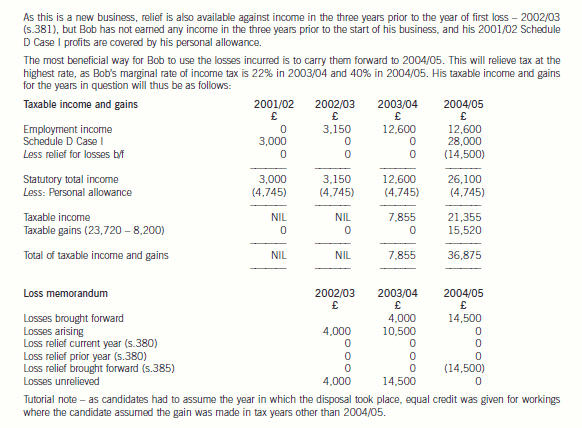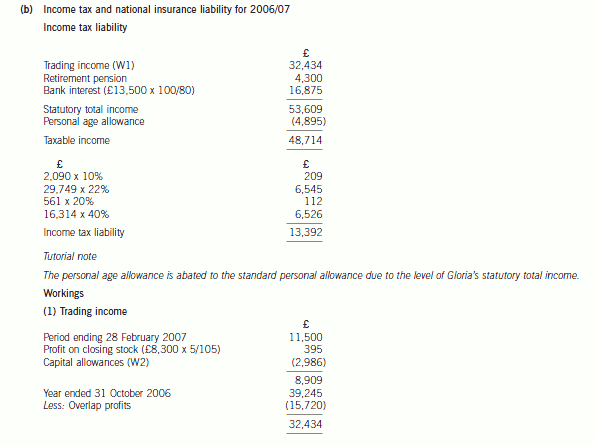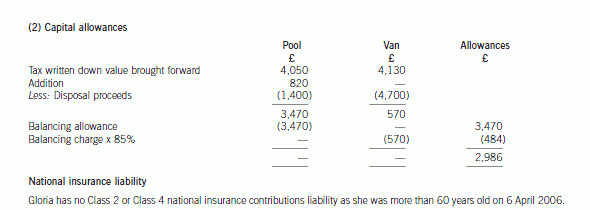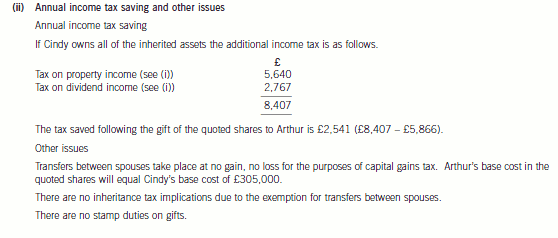(b) (i) State the condition that would need to be satisfied for the exercise of Paul’s share options in Memphis
plc to be exempt from income tax and the tax implications if this condition is not satisfied.
(2 marks)
第1题:
(ii) State when the inheritance tax (IHT) calculated in (i) would be payable and by whom. (2 marks)
第2题:
(b) Assuming that the income from the sale of the books is not treated as trading income, calculate Bob’s taxable
income and gains for all relevant tax years, using any loss reliefs in the most tax-efficient manner. Your
answer should include an explanation of the loss reliefs available and your reasons for using (or not using)
them. (12 marks)
Assume that the rates and allowances for 2004/05 apply throughout this part of the question.


第3题:
(c) the deferred tax implications (with suitable calculations) for the company which arise from the recognition
of a remuneration expense for the directors’ share options. (7 marks)

第4题:
(b) Compute Gloria’s total income tax and national insurance liability for 2006/07. (7 marks)


第5题:
(b) (i) Advise Benny of the income tax implications of the grant and exercise of the share options in Summer
Glow plc on the assumption that the share price on 1 September 2007 and on the day he exercises the
options is £3·35 per share. Explain why the share option scheme is not free from risk by reference to
the rules of the scheme and the circumstances surrounding the company. (4 marks)
第6题:
(c) (i) Explain the capital gains tax (CGT) implications of a takeover where the consideration is in the form. of
shares (a ‘paper for paper’ transaction) stating any conditions that need to be satisfied. (4 marks)
第7题:
(ii) Explain the income tax (IT), national insurance (NIC) and capital gains tax (CGT) implications arising on
the grant to and exercise by an employee of an option to buy shares in an unapproved share option
scheme and on the subsequent sale of these shares. State clearly how these would apply in Henry’s
case. (8 marks)
第8题:
(c) Assuming that Joanne registers for value added tax (VAT) with effect from 1 April 2006:
(i) Calculate her income tax (IT) and capital gains tax (CGT) payable for the year of assessment 2005/06.
You are not required to calculate any national insurance liabilities in this sub-part. (6 marks)

第9题:
(ii) Compute the annual income tax saving from your recommendation in (i) above as compared with the
situation where Cindy retains both the property and the shares. Identify any other tax implications
arising from your recommendation. Your answer should consider all relevant taxes. (3 marks)

第10题:
(d) Explain how Gloria would be taxed in the UK on the dividends paid by Bubble Inc and the capital gains tax
and inheritance tax implications of a future disposal of the shares. Clearly state, giving reasons, whether or
not the payment made to Eric is allowable for capital gains tax purposes. (9 marks)
You should assume that the rates and allowances for the tax year 2005/06 apply throughout this question.